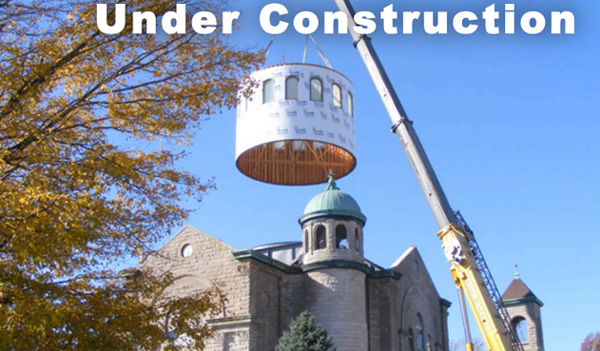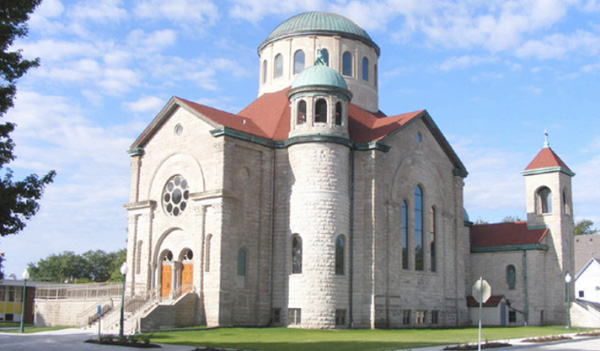All Saints Church New Markets Tax Credits & Historic Tax Credit Project
Project Facts
Total project cost:
$4.5 million
Sources of Funds:
$2 million grants; $1.3 million loans; $1.2 million tax credit equity
Date Completed:
2010
Size:
approx. 8400 sq. ft.
Use:
Cultural Center; Art Gallery
Developer(s):
Project Restore Foundation
Owner:
Project Restore Foundation
Year Built:
1910
Location:
320 N. Fremont, Stuart, Iowa


Tucked away in south-central Iowa, this church has history that dates back to Catholic clergy in 1887. All Saints Catholic Church is a former parish church building in the Diocese of Des Moines. The parish used the building as its church until a devastating fire severely damaged the structure. The building has been rebuilt and it serves as a cultural center called the Historic All Saints/Saints Center for Culture and the Arts. It is listed on the National Register of Historic Places, and is a rare example of Neo-Byzantine architecture in the state of Iowa.
In 1902, the Rev. M.S. McNamara became pastor, and during his pastorate plans for a new church were developed and executed. The cornerstone was laid in September 1908 and it was completed in 1910. It was built of blue Bedford limestone in a combination of Byzantine Revival and Romanesque Revival styles. The building measures 70 feet (21 m) wide, 120 feet (37 m) long and 110 feet (34 m) high. It has a seating capacity of 600. The interior is under an 90-foot (27 m) high dome that contains 16 windows. The exterior of the dome is covered in copper. The church was decorated with Italian marble, rare woods, hand painted frescos, gold gilding, and statuary. Bishop James Davis of Davenport dedicated the church at a Pontifical High Mass.
In order to utilize HTCs for the All Saints Catholic Church, the Project Restore Foundation entered into a Limited Partnership (LP) with an Investor. This LP, called the Project Restore Saints Center Landlord, longterm leased the building from the Foundation, enabling the Investor to claim the over $1 million historic tax credit generated by the renovation. Brian Wishneff & Associates made sure that these transactions were done properly, on time, and maximized equity to complete the project.